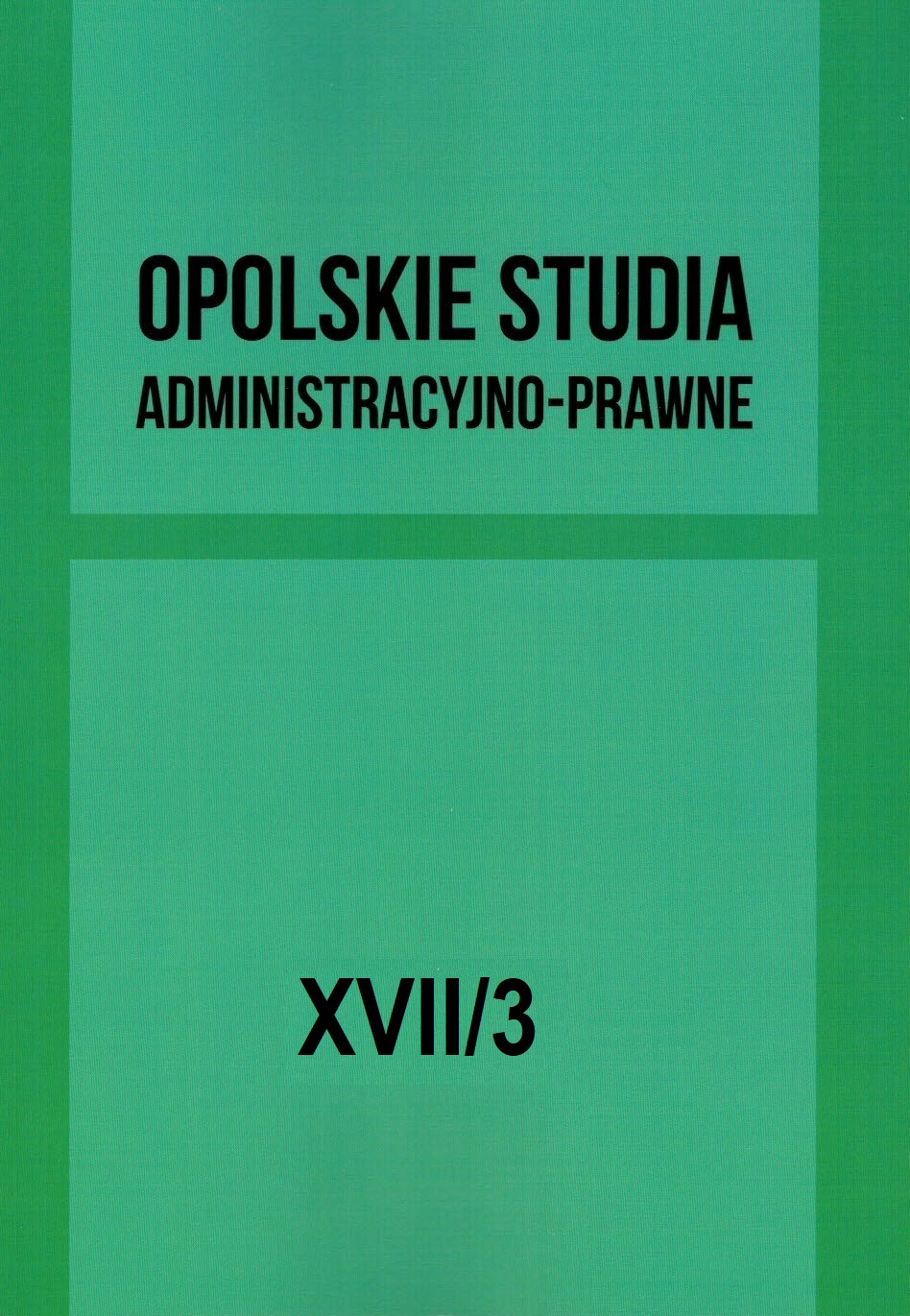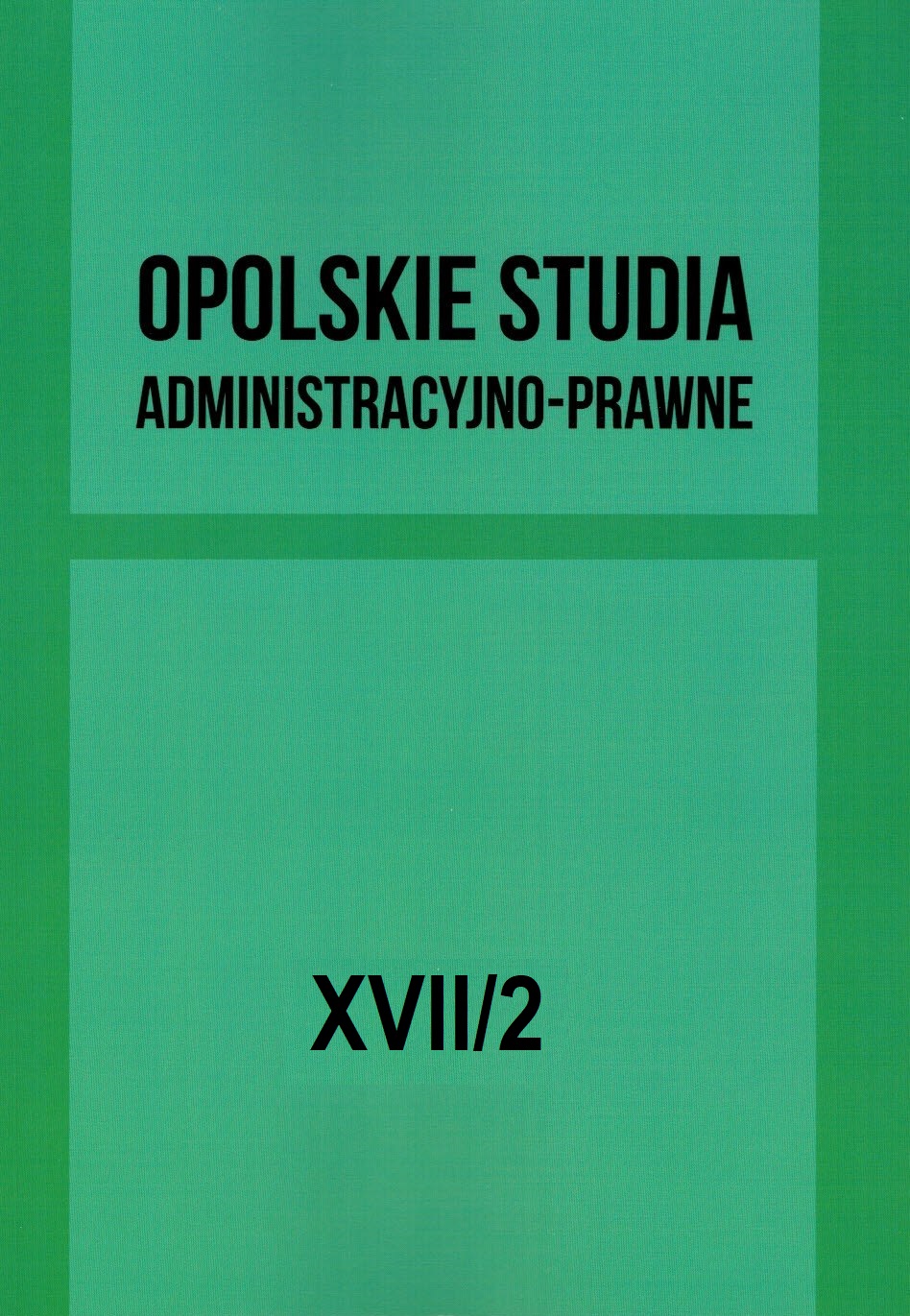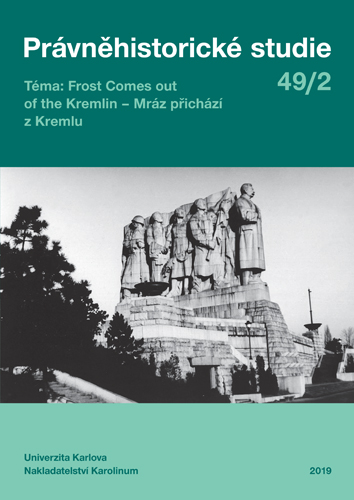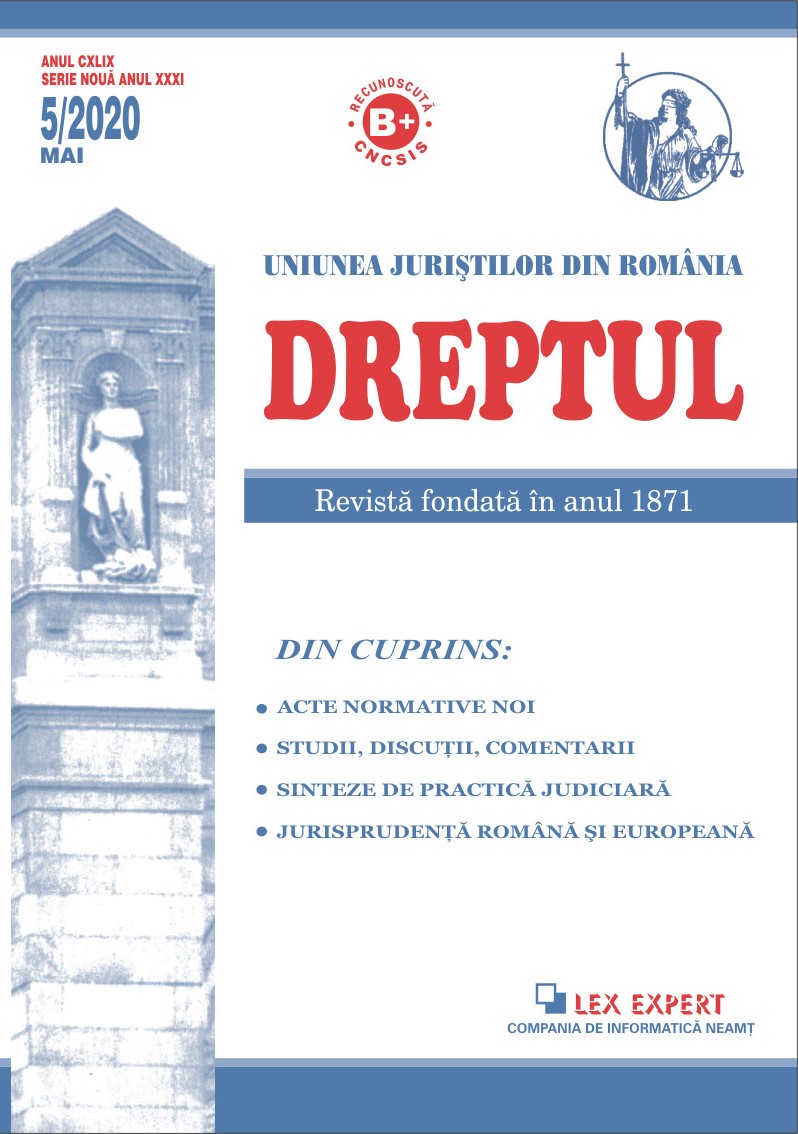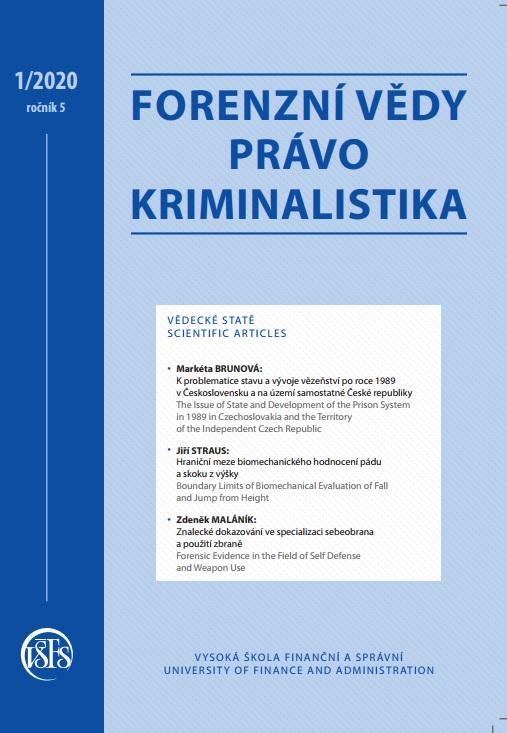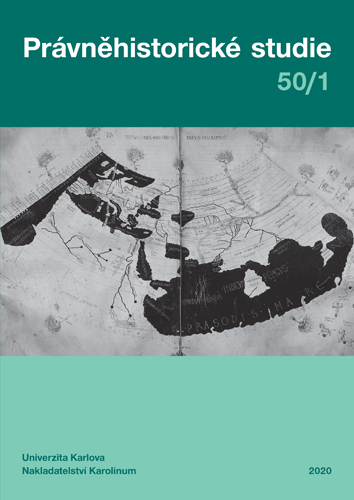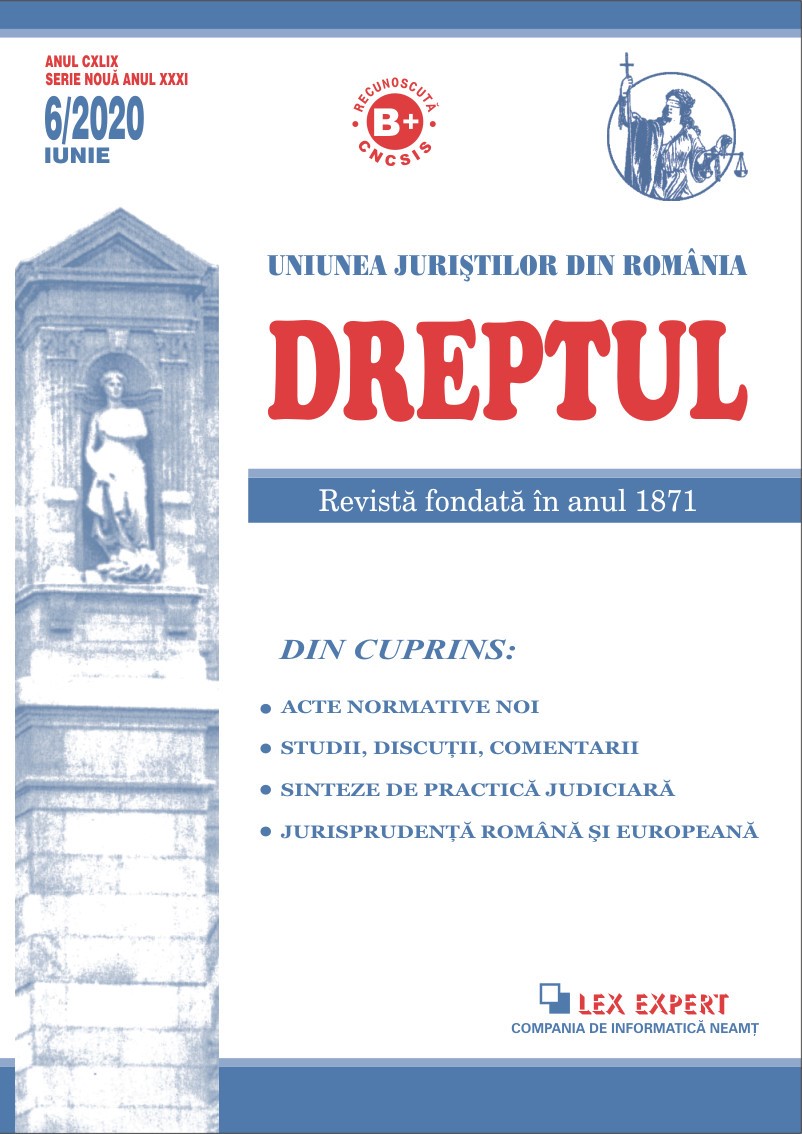Author(s): Iuliu Crăcană / Language(s): Romanian
Issue: 06/2020
The topic covered in this study is related to one of the few polemics that took place in the pages of the Romanian Law Magazine in the ’80s. In Issue 1/1987 of the magazine, Octavian Cojocaru criticized in the study „Judicial rehabilitation. Application made by the spouse or close relatives, after the death of the convicted person, before the execution of the sentence” a correct sentence of the Suceava County Tribunal, pronounced in 1985, in disagreement with the provisions of the Criminal Code in force at that time and against a decision of the Supreme Tribunal, according to which the convicted person who had died before the execution of the sentence could no longer be rehabilitated. Later, in 1988, Valeriu Ciucă, a judge at the same Suceava County Tribunal, published in the same magazine a critical article related to the case law note signed by Octavian Cojocaru, which shows, with solid arguments, that the decision pronounced by Suceava County Tribunal was correct from a juridical point of view. In the communist regime, a convicted parent not rehabilitated was a serious and irremovable stain in his son’s personal file. In 1985, a panel of judges of Suceava County Tribunal, presided by Judge Mihail C. Ardeleanu, pronounced a courageous sentence, contra legem, with interesting short- and, especially, long-term implications. In this case, a young graduate, the highest ranking graduate at the Military Marine Institute from Constanța, could not become an officer nor could he advance in rank, because his father, who died in prison, had not been yet rehabilitated. The study analyzes the theoretical implications that, unlike the criminal school promoted by Professor Ion Tanoviceanu, the Dongorozian school has, which separates the criminology, influenced by the positivist school, from the „discipline” of criminal law. It is known that the great Romanian criminal specialist, Vintilă Dongoroz, creates a theoretical system in which he does not leave too much room for interpretation to the judge, with regard to the court document. According to the provisions of Article 137 of the Criminal Code of 1968, the rehabilitation of the deceased person in prison was impossible. The convicted person could not fulfil two mandatory requirements for rehabilitation, provided in the Criminal Code, unless he was alive. However, against the doctrine and against a decision of the Supreme Tribunal, Judge Mihail C. Ardeleanu used the method of analogue interpretation and pronounced a sentence by which the young man’s father could be rehabilitated. The polemic created in the Romanian Law Magazine eventually led to the loss of the injustice arising from the text of the law in front of the courage to enthrone justice, which was demonstrated by the judge Mihail Ardeleanu, and, the following year, the subject, as a legal argumentation, be turned into a subject at the examination of capacity (permanent teacher certification) for judges.
More...
